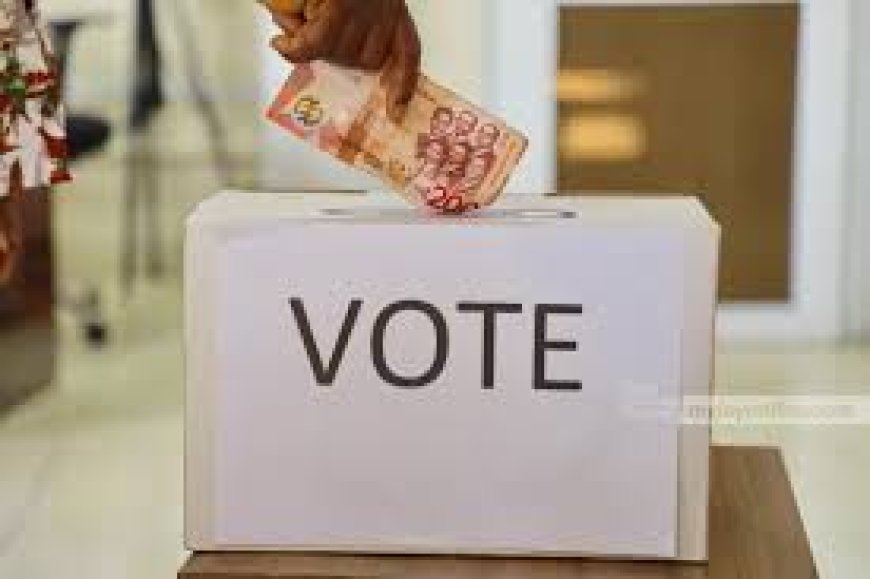Vote buying: A threat to Ghana's Democracy
This tendency not only compromises the integrity of elections but also causes havoc with Ghana's democratic process. The effects of vote buying on democracy and society are examined in this article.
The Increasing Issue of Vote-Buying
Vote buying has been an alarmingly frequent practice in Ghanaian politics in recent years. To sway voters, politicians employ a variety of strategies, including giving out food, cash, and other items. The lax enforcement of current rules allows this trend to continue unabated even though it is illegal. The practice is considerably more prevalent in parliamentary elections, where there is fierce competition at the constituency level, and it poses a serious challenge to fair elections.
Destroying the Integrity of Elections
Vote buying is a serious danger to Ghana's electoral integrity. Election results lose their legitimacy when voters are influenced more by material incentives than by policies. Consequently, the electorate may not see things as they truly believe, which would erode public confidence in the election process. Voter disenchantment is exacerbated by this degradation of voting integrity, which puts democratic institutions at jeopardy.
Influence on Election Engagement
The manner that vote buying distorts political participation is among its most harmful impacts. When elections are viewed as exchanges of goods, genuine civic participation is marginalized. It is possible that voters may stop feeling the need to participate in educated debates on political candidates' performances or programs and will instead become obedient consumers of transient benefits. This change marginalizes voter voices in the democratic process and lessens the importance of open discourse and political accountability.
Sustaining Corruption and Clientelism
Vote buying perpetuates a system of clientelism and fosters corruption in Ghanaian politics. In order to get votes, politicians and political parties frequently rely on patronage networks. This results in a system where monetary goods and favors take the place of merit-based political engagement. This clientelist strategy ignores the larger public good in favor of entrenching power dynamics and creating dependencies that benefit particular parties. As a result, politicians who partake in these activities are more likely to put the demands of the broader public below the interests of individuals in their network of patrons.
Destroying Democratic Rule of Law
Vote buying skews election results in ways that seriously undermine democratic governance. Vote-buying dilutes accountability and transparency because politicians who win with such tactics are less likely to face consequences from the public for their decisions. The fundamental tenets of democracy, such equitable representation and responsive government, are compromised by this. Over time, it impedes attempts to establish robust democratic establishments and encourage representative, inclusive governance.
Addressing the Challenge of Vote Buying
Combating vote buying in Ghana requires a multi-faceted approach. First, legal reforms are essential to tighten electoral regulations and strengthen anti-corruption laws. Enforcement mechanisms need to be more robust to hold violators accountable. Moreover, civic education initiatives should be ramped up to help citizens understand the importance of making informed voting decisions, based on policies and principles rather than material incentives. Transparent campaign financing regulations could also curb the influence of money in politics, making it harder for candidates to exploit voters' vulnerabilities.
Conclusion
Vote buying is a significant threat to the integrity of elections, political participation, and democratic governance in Ghana. It distorts electoral outcomes, perpetuates corruption, and weakens democratic institutions. To address this pervasive challenge, comprehensive reforms in law enforcement, campaign financing, and voter education are crucial. Only by tackling vote buying can Ghana’s democracy flourish, ensuring that elections reflect the true will of the people and advancing the nation’s democratic ideals.








